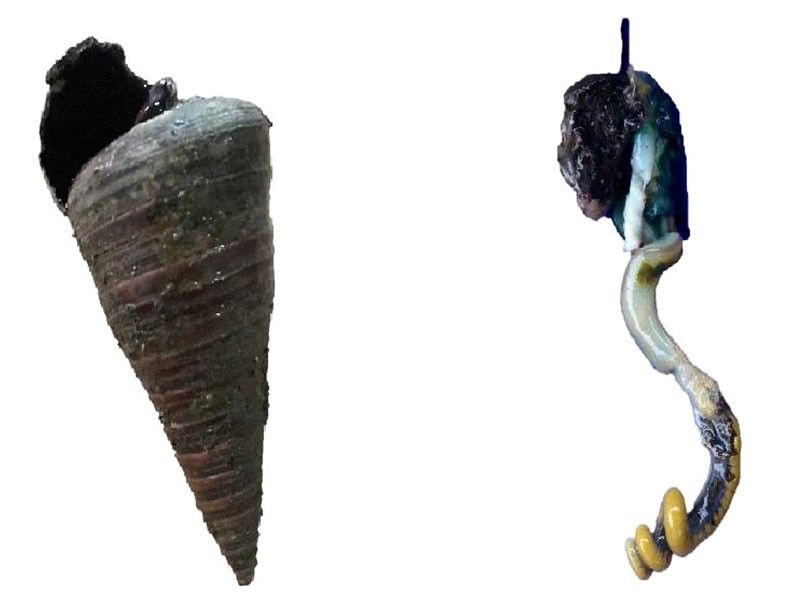UP students discover potential cancer treatment in horn snail

MANILA, Philippines — Compounds extracted from a species of horn snails, locally known as bagongon, were discovered to have properties that may be used for the development of a cancer treatment.
Students from the University of the Philippines-Manila, in a study published in the journal Acta Medica Philippina last month, found that certain extracts from locally abundant horn snails (Telescopium telescopium) may prevent angiogenesis or the formation of blood vessels from existing ones.
The blood vessels, according to the authors, supply oxygen and nutrients for the growth of cancer cells, making angiogenesis a significant mechanism of growth and spread of cancer cells in the body.
“By preventing angiogenesis, cancer cells are starved and do not grow and spread,” read an abstract of the study released by the UP office of the vice president for academic affairs.
“Therefore, the use of anti-angiogenic agents has been an advantageous therapy for cancer. This study evaluated the potential antiangiogenic activity of Telescopium telescopium locally known as Bagongon,” it added.
The paper was co-authored by industrial pharmacy graduates Milany Anne Luay, Mary France Gonzaga and Sharmaine Kae Po, along with their adviser Erna Arollado, currently the director of the UP Institute of Pharmaceutical Sciences.
Po, in an interview with The STAR, clarified that their research is only an initial step into finding an actual cure or treatment for cancer using extracts from horn snails.
She said more studies and trials are needed in order for a cure to be made available to the public.
‘For Filipinos’
Po, who is now a medicine student, said they worked on the research in 2017 as their undergraduate thesis for the Bachelor of Science in Industrial Pharmacy program of the university.
They also presented the results of the study at a conference in Kuala Lumpur, Malaysia in 2017.
She said they decided on the topic as they wanted to address a major issue affecting Filipinos, noting that approximately 59,000 people in the country die due to different types of cancer every year.
By looking at the potential of locally abundant organisms like the horn snail, Po said they wanted to establish initial research that may pave way to the development of an anti-cancer treatment that could benefit Filipinos.
Asked why they specifically selected bagongon, she cited research showing the potential of horn snails for various antitumor agents and medications for the immune system.
“The marine ecosystem is recognized as an important source of bioactive compounds having medicinal potential,” added the authors in the paper.
“About two percent of the major sources of biomedical compounds obtained from invertebrates come from the phylum Mollusca,” they noted, referring to the taxonomic category where horn snails belong.
To determine the antiangiogenic properties of horn snails, the researchers obtained extracts from bagongon from Iloilo and tested it on partially opened fertilized duck eggs.
Po said these enabled them to observe the growth of the blood vessels, or the lack of it in those that had the horn snail extracts applied on them.
The researchers concluded that a certain type of compound called sterols or steroidal alcohols found in horn snails primarily contributed to its antiangiogenic property.
- Latest
- Trending































